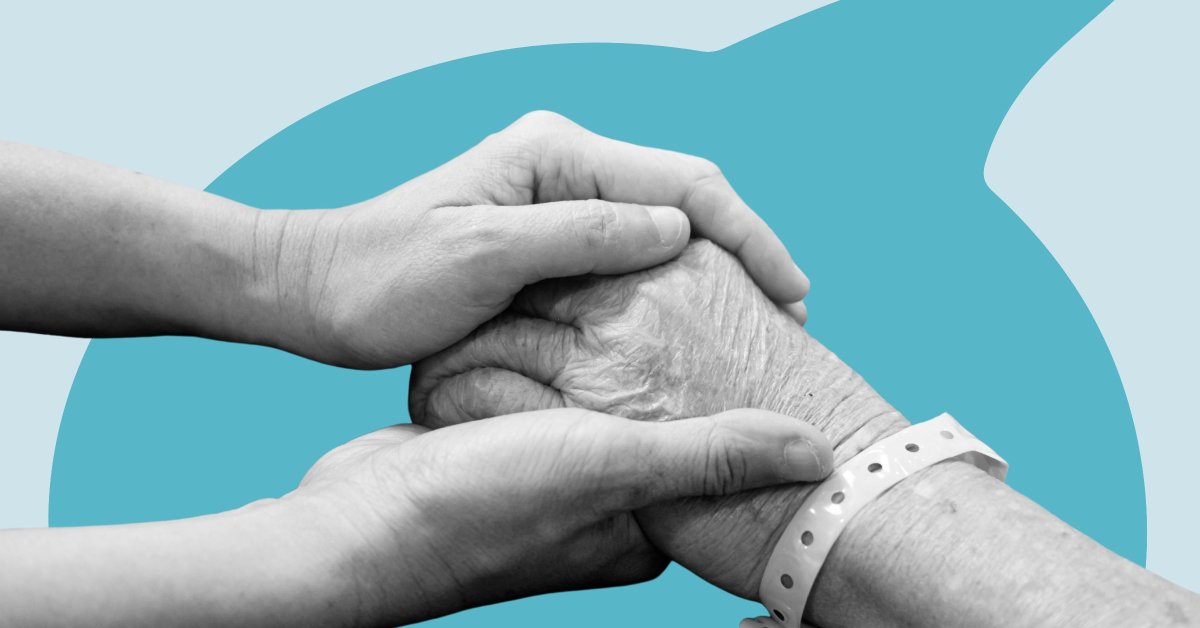Cancer Diagnosis: The Do's And Don'ts Of Offering Support

Welcome to your ultimate source for breaking news, trending updates, and in-depth stories from around the world. Whether it's politics, technology, entertainment, sports, or lifestyle, we bring you real-time updates that keep you informed and ahead of the curve.
Our team works tirelessly to ensure you never miss a moment. From the latest developments in global events to the most talked-about topics on social media, our news platform is designed to deliver accurate and timely information, all in one place.
Stay in the know and join thousands of readers who trust us for reliable, up-to-date content. Explore our expertly curated articles and dive deeper into the stories that matter to you. Visit Best Website now and be part of the conversation. Don't miss out on the headlines that shape our world!
Table of Contents
Cancer Diagnosis: The Do's and Don'ts of Offering Support
Receiving a cancer diagnosis is undoubtedly one of life's most challenging experiences. The emotional toll is immense, leaving individuals and families grappling with fear, uncertainty, and a profound sense of loss of control. During this incredibly difficult time, the support of loved ones is crucial. However, well-intentioned offers of help can sometimes miss the mark, inadvertently causing further distress. Understanding the do's and don'ts of offering support can make a significant difference in a cancer patient's journey.
What to Do: Offering Meaningful Support to Cancer Patients
Offering support to someone facing a cancer diagnosis requires sensitivity, empathy, and a genuine willingness to be present. Here's how to provide meaningful assistance:
-
Listen without judgment: Often, the most valuable thing you can offer is a listening ear. Let them share their feelings, fears, and anxieties without interruption or offering unsolicited advice. Simply being present and acknowledging their experience is powerful.
-
Offer practical help: Instead of asking "What can I do?", offer specific, actionable help. This could include:
- Meal preparation: Organize a meal train with friends and family.
- Transportation: Offer rides to and from appointments.
- Childcare: Help with childcare responsibilities.
- Household chores: Assist with cleaning, laundry, or yard work.
- Financial assistance: Explore resources or discreetly offer financial support if appropriate.
-
Educate yourself about their cancer: Understanding their specific diagnosis and treatment plan shows you care and allows for more informed support. This doesn't require becoming a medical expert, but a basic understanding can help you navigate conversations and offer more relevant assistance.
-
Maintain regular contact: Don't disappear after the initial diagnosis. Consistent, even brief, contact shows you're thinking of them and are there for the long haul. A simple text, phone call, or email can make a world of difference.
-
Respect their boundaries: Everyone copes differently with cancer. Respect their need for space and privacy. Don't pressure them to share more than they're comfortable with.
-
Include them in activities (when appropriate): If they're up for it, invite them to gentle activities, such as a walk in the park or a quiet movie night. This can help maintain a sense of normalcy and connection.
-
Connect them with resources: Many organizations offer invaluable support to cancer patients and their families. Connecting them with resources like the American Cancer Society () or the National Cancer Institute () can be a significant act of support.
What Not to Do: Avoiding Common Mistakes When Offering Support
Well-intentioned actions can sometimes unintentionally cause harm. Avoid these common mistakes:
-
Offering unsolicited advice or minimizing their experience: Statements like "You'll be fine" or "Just stay positive" can be dismissive and hurtful. Focus on validating their feelings, not trying to fix them.
-
Comparing their situation to others: Every cancer journey is unique. Avoid comparing their experience to someone else's.
-
Focusing solely on the physical aspects: Cancer impacts every aspect of a person's life – physical, emotional, and social. Acknowledge and address their emotional and psychological needs.
-
Being overly cheerful or avoiding difficult conversations: It's okay to acknowledge the seriousness of their situation. Authentic empathy is more valuable than forced positivity.
-
Gossiping or sharing their private information: Maintain confidentiality and respect their privacy.
-
Making promises you can't keep: It's better to offer realistic assistance than to overpromise and underdeliver.
Conclusion: The Power of Thoughtful Support
Navigating a cancer diagnosis is a challenging journey, but the support of loved ones can significantly impact the experience. By understanding the do's and don'ts of offering support, you can provide meaningful assistance and help someone facing cancer feel loved, understood, and empowered during one of the most difficult times of their lives. Remember, your presence and genuine empathy can make all the difference. Offering support doesn't require grand gestures; small acts of kindness and consistent presence can have a profound impact.

Thank you for visiting our website, your trusted source for the latest updates and in-depth coverage on Cancer Diagnosis: The Do's And Don'ts Of Offering Support. We're committed to keeping you informed with timely and accurate information to meet your curiosity and needs.
If you have any questions, suggestions, or feedback, we'd love to hear from you. Your insights are valuable to us and help us improve to serve you better. Feel free to reach out through our contact page.
Don't forget to bookmark our website and check back regularly for the latest headlines and trending topics. See you next time, and thank you for being part of our growing community!
Featured Posts
-
 24 Starlink Satellites On Falcon 9 Space X Launch Live Coverage
Jul 27, 2025
24 Starlink Satellites On Falcon 9 Space X Launch Live Coverage
Jul 27, 2025 -
 Trumps Presidential Hopes Falter As Independent Support Erodes
Jul 27, 2025
Trumps Presidential Hopes Falter As Independent Support Erodes
Jul 27, 2025 -
 Daniel Day Lewiss Farewell Analyzing The Actors Decision To Leave The Stage
Jul 27, 2025
Daniel Day Lewiss Farewell Analyzing The Actors Decision To Leave The Stage
Jul 27, 2025 -
 Fantastic Fours First Steps A Deeper Dive Into The Things Character
Jul 27, 2025
Fantastic Fours First Steps A Deeper Dive Into The Things Character
Jul 27, 2025 -
 Saturday Night Live New Episode Tonight Host And Musical Guest For July 26th
Jul 27, 2025
Saturday Night Live New Episode Tonight Host And Musical Guest For July 26th
Jul 27, 2025
